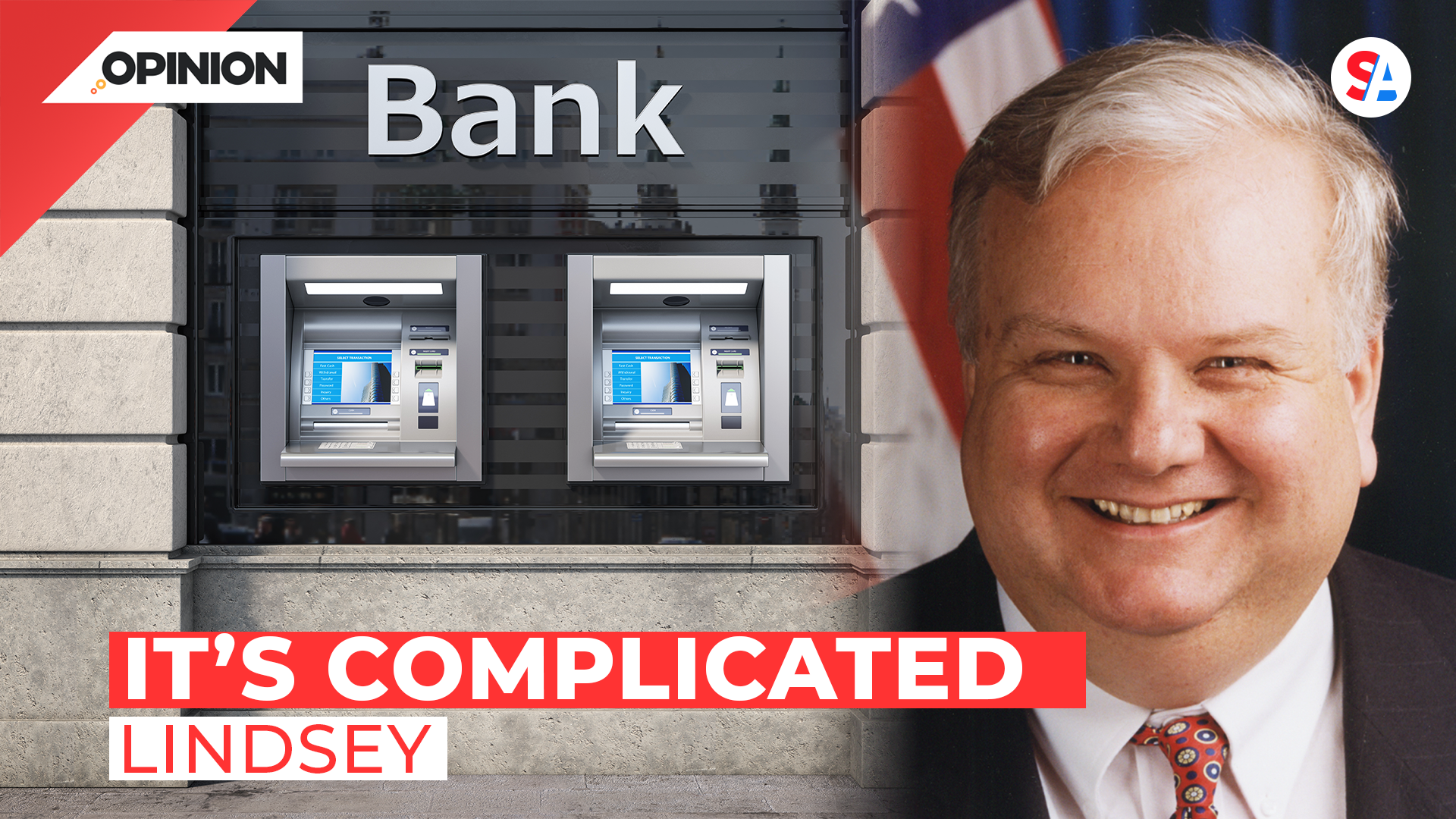
Commentary
-
Our commentary partners will help you reach your own conclusions on complex topics.
The question on everyone’s mind is, are my deposits safe at my bank? Well, the short answer to the question is yes. The long answer, as usual is — it’s complicated. Let’s start off with why your deposits basically are safe. First, although there are some bad apples, banks tend to be very solvent. They don’t stay in existence if they’re not solid. And in addition, the banks have someone looking over their shoulder in the form of bank supervisors and regulators.
Now, the supervisors and regulators don’t always do a perfect job. But you have not only the banker, but also the regulator interested in keeping it going. That said, the solvency of a bank is determined in large part by forces outside of a bank’s control. For example, if there’s sudden loss of confidence in the bank, whether the bank is solvent or not, depositors often take their money out of the bank. That’s called a run on the bank. And oftentimes, banks have runs for reasons that have nothing to do with them. The second thing that is outside of the bank’s control is the business cycle. Right now, a lot of banks are invested in commercial real estate, excuse me, they’ve made loans to commercial real estate. Commercial real estate is in trouble. Office vacancy rates are pushing 15%. Those loans were made with interest rates that are much lower than today. And when they roll over, it’s going to be a lot tougher for the owner to be able to refinance the mortgage on the commercial real estate. Well, if they can’t refinance it, the commercial real estate may go under. That would cause trouble for the bank. So things can go wrong. Well, just because things can go wrong, the government steps in again. There’s a number of backstops that the government provides. The first that you’ve probably heard of is FDIC insurance: Federal Deposit Insurance Corporation. They will back up 250,000 for any individual for their deposits in a bank. If you’re under 250,000, you really don’t have anything to worry about, you’ll get your 250,000. If you have more than that, then the standard procedure is to resolve the bank, see how much is left over and then divide it among the depositors. So your chances there of actually losing money, again, are reduced. In addition, the FDIC can step in and give everyone, all depositors, all of their money back. They did, for example, in the case of Silicon Valley Bank. They simply have to declare that the bank is systemically important. Meaning that bank’s failure would cause trouble throughout the banking system. Now, the incentive is always to backstop a bank because if there is a bank run, it’s not going to be just one bank. It’s going to be other banks, as well, as people see folks lined up outside the other bank trying to take their money out. So the government has every incentive to try and backstop all the deposits in the bank if they possibly can. So far, so good. But there’s still no guarantee. And what you have to figure out is how much risk you actually want to take. Let’s say we start with the fact that your money is, even over 250,000, is probably 99% safe. There’s a very, very small chance that anything will go wrong that’s sufficient for you to lose money. Well, 99%, I mean, gosh, lots of things can happen. An asteroid can strike the Earth. You could have, you could have a sudden heart attack or a car accident. There’s things you can’t control for in life. So most times we take low risk, bad things for granted, just part of the background. But you also have the problem that because of the systemically important rule, it actually is a political choice. So it isn’t necessarily true that they’re going to do everything they need to save the bank, who knows. So you have to ask yourself the question, can you afford it? Suppose in this odd, odd circumstances 1% or less chance that you won’t be backstopped, what’s the money there for? Well, I have two companies. One, I have employees, I have to meet payroll. My payroll requires that I keep more than 250 in the bank. Can I afford to lose that? Could I afford to not meet my employees’ payroll? No, I don’t think so. And even a 1% chance of that happening is too much for me. I’m also an investor in a real estate company. And it’s for, basically, for summer rentals at a beach. And right now, all of the escrows are coming in. Basically, people pay half their rent up front, we put it in an escrow account. We can’t afford to lose that escrow account. Again, even a 1% chance is too much for me. So in those cases, you have to look for alternatives. There are a variety of them. One of them is something called Treasury direct, where you can keep your money actually at the Treasury Department, and it would be perfectly safe. Well, in answer, is your deposit safe — the short answer is yes. But once again, the longer answer is, well, it depends. This is Larry Lindsey frustrate arrow News.
-
Election 2024 will boil down to the Great Lakes states
Pollsters and pundits have been engaged in a long debate about how Biden or Trump might win the 2024 election, with much of their focus spent on the “swing state” electoral battlegrounds. While the winners of Alabama or California may be obvious, for instance, who wins Pennsylvania is a more difficult question. Watch the above…
-
Why the Fed should consider Theory of Reflexivity when fixing policy
The Theory of Reflexivity, often used in the context of economics and financial markets, implies that investors don’t base their decisions on reality but on their perceptions of reality. This creates a feedback loop where investors’ perceptions influence economic fundamentals, which in turn alter investor perceptions. Watch the above video as Straight Arrow News contributor…
-
Federal Reserve surpassed its own wildest expectations
On May 14, the U.S. Bureau of Labor Statistics released the most current producer price index (PPI) report, which showed an increase of 0.5% month-over-month in April. After the report’s release, U.S. Federal Reserve chairman Jerome “Jay” Powell said that while he believes the current policy rate is restrictive by many measures, the Fed needs…
-
Polls give slight advantage to Trump in Electoral College
With the U.S. general election only six months away, leading candidates President Joe Biden and former President Donald Trump appear to be engaged in a very close contest. In their 2020 race, the winner of the Electoral College was ultimately determined by a relative handful of voters in just a few swing states, even though…
-
College sports is big money but not everyone benefits
March Madness has wrapped up and Caitlin Clark has emerged as a household name as well as a wealthy student athlete. Earning over $3 million throughout her college career, her success stands in stark contrast to the previous notion that collegiate athletes shouldn’t earn anything beyond their scholarship. Straight Arrow News contributor Larry Lindsey examines…
Latest Opinions
-
 U.S. Department of Defense
U.S. Department of Defense
Congress still trying to figure out how to reduce wasteful military spending
-
 DVIDS
DVIDS
US Navy, Air Force making waves with new weapons at RIMPAC
-
 Getty Images
Getty Images
Israeli PM Netanyahu meets with Trump at Mar-a-Lago
-
 Getty Images
Getty Images
Growing US nuclear power resurgence reaches the nation’s heartland
-
 Getty Images
Getty Images
Beer from the sun, other solar thermal projects get government funding
Popular Opinions
-
In addition to the facts, we believe it’s vital to hear perspectives from all sides of the political spectrum.


